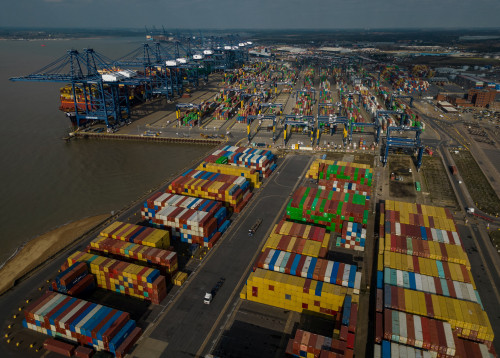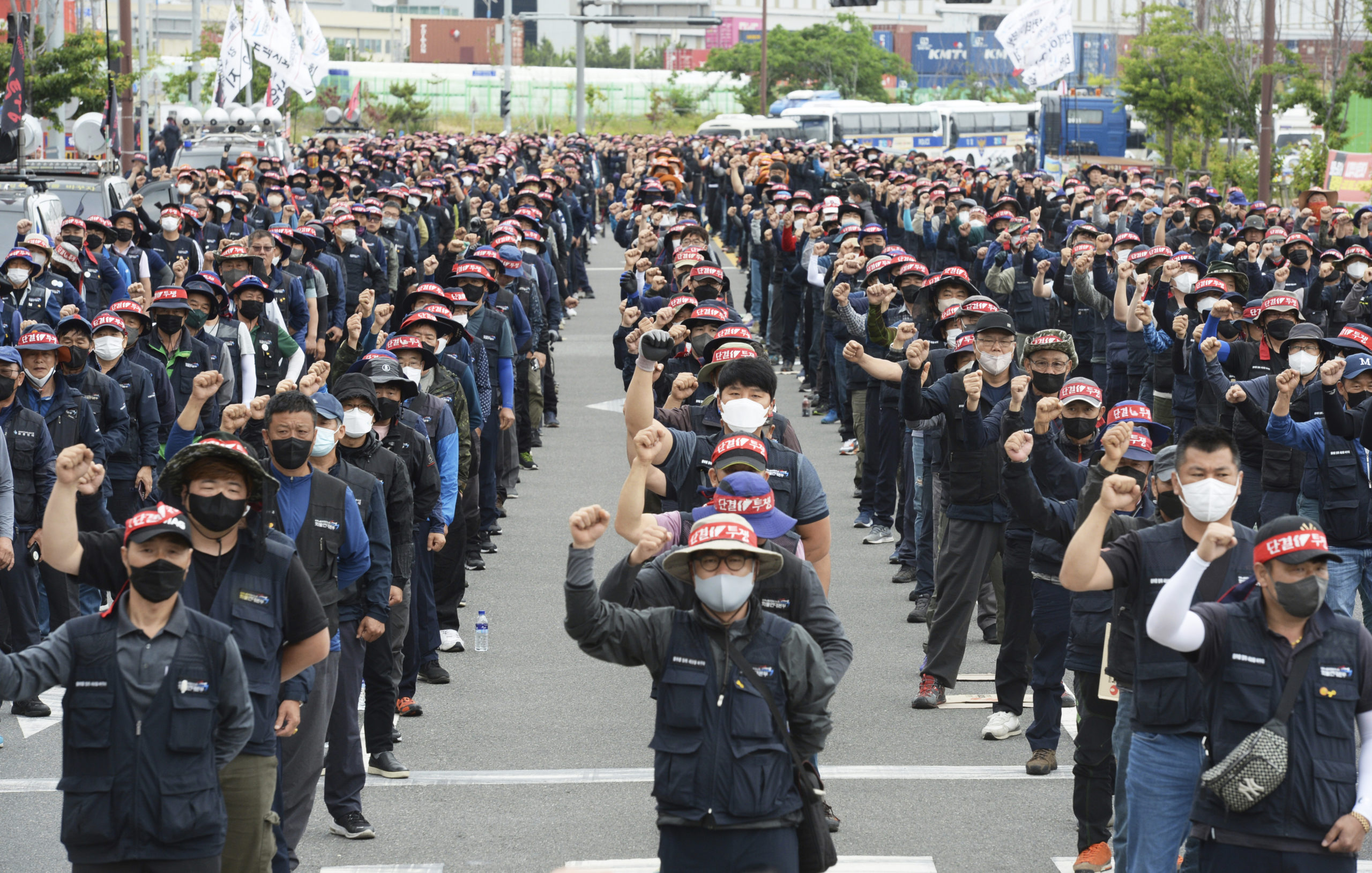 1
1 1
1
SEOUL, South Korea (AP) — A weeklong strike by thousands of truckers in South Korea has triggered major disruptions in cargo transport and production that have caused 1.6 trillion won ($1.2 billion) in damages, officials said Monday.
An extended strike may eventually worsen the global supply chains already battered by Russia’s invasion of Ukraine and China’s pandemic curbs. But the strike’s impact has so far been largely limited to South Korea’s domestic industry. The world’s 10th largest economy, the country hasn’t reported any major disruption of exports of key items like semiconductors.
The fourth round of negotiations between the striking truckers and government officials Sunday failed to reach a deal. Transport Ministry officials said they would seek to continue talks to end the strike, but the Cargo Truckers Solidarity said Monday it has no immediate plans to resume the negotiations.
At the center of the dispute is the truckers’ calls for a minimum wage guarantee amid surging fuel prices. It wasn’t known what exactly broke down Sunday’s talks, but the truckers’ association said the government refused to accept its calls for “a more active position” on the minimum wage demand.
The Transport Ministry said about 6,600 truckers were rallying Monday in 14 locations across South Korea. But the Cargo Truckers Solidarity said a far larger number of truckers were refusing to work, staying at home or elsewhere instead of taking part in rallies.
South Korea’s auto, steel, petrochemistry, cement and other sectors have been hit hard by the strike.
Factories couldn’t produce 5,400 cars as scheduled due to a delay of deliveries of components. The planned shipping or delivery of 450,000 tons of steels, 500 billion won ($390 million) worth of petrochemicals, 810,000 tons of cement and 640,000 tires have also been put off, the Ministry of Trade, Industry and Energy said in a statement.
But the ministry said that South Korea’s cargo transport disruption hasn’t reached a level that threatens global supply chains. It also said it hasn’t received reports of meaningful disruptions of exports of semiconductors, automobiles and other key items.
Observers say some companies ordered supplies in advance in anticipation of the strike.
“The strike is affecting our country’s domestic supply chains, rather than global ones,” said Chang Sangsik, chief of an office on supply chains at the Korea International Trade Association in Seoul.
“Some foreign companies make finished products by using parts and intermediary goods manufactured by South Korean companies,” he said. “If they find it difficult to get such products due to the truckers’ strike, that means it is affecting (supply chains) in other countries. But such a situation hasn’t come yet.”
Chang said many foreign companies hold extra inventory that can sustain supply shocks for weeks or even several months.
Lee Jang-Gyoon, chief researcher at the Hyundai Research Institute, said the truckers’ strikes could still affect global supply chains if they continue too much longer, as a delay in cargo transport would hamper productions.